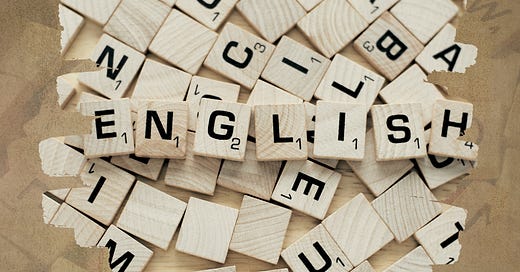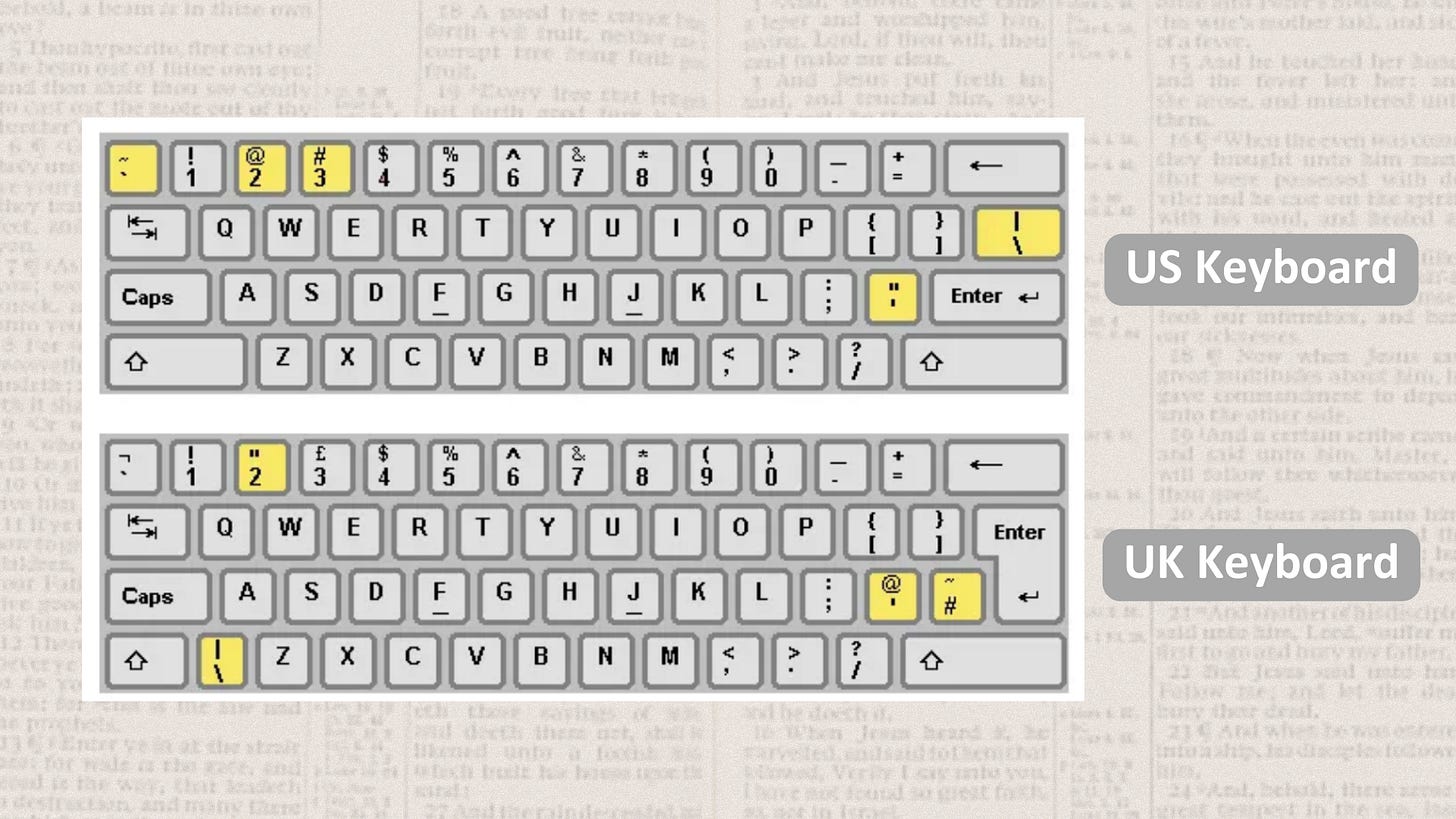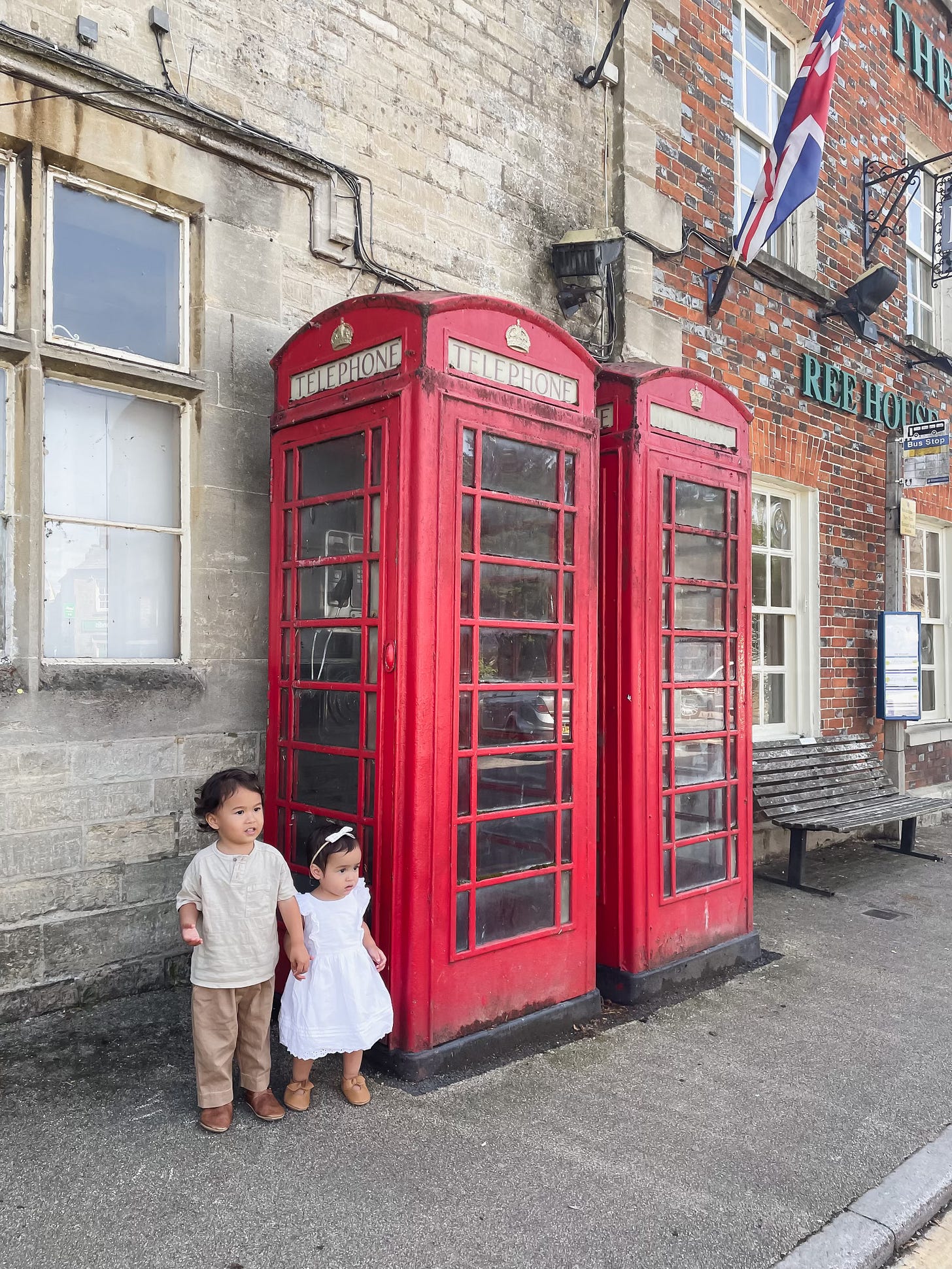"England and America are two countries separated by a common language."
–George Bernard Shaw
One of my good friends recently asked me, “So, what sorts of slang have you learned since living in the UK?” A smile of amusement crawled slowly across my face as I contemplated the answer. We’ve always known that going into a cross-cultural setting would inevitably produce particular UK-specific growth in us as individuals and as a family. One such increase is our adaptive response to contextualizing language.
Our third culture kids are beginning to form a subtle English accent with particular words and phrases. For example, when they aren’t able to do something or are unwilling to try, they often use the phrase “I can’t” but pronounce “can’t” with a long ahh sound (ɑː). Our daughter pronounces the word “bath” with the same long ahh (ɑː) sound instead of a short aye (æ), like in the word “cat.” Another amusing example is our son pronouncing the word, scone, as in the baked good, like scawn instead of cone with an “s” at the beginning. Sometimes, when they say “daddy,” I feel like I’m in a live-action Paddington movie or off gallivanting into the hundred-acre wood à la Christopher Robin and Winnie the Pooh.
When we think about it, the kids still retain some American ways of speaking. Yet, many of their sentences are characterized by a subtle upward inflection at the end, as if everything were phrased as a question. Another way of observing our acculturation is through the use of British vocabulary, which has now become part and parcel of our everyday parlance.
Vocabulary
There are countless examples of particular British words that would make the average American scratch their head, thinking, “What on earth are they talking about?” Here’s a small sample of words and expressions we’ve begun using:
“Are you alright?” - A common greeting in the UK usually spoken quickly, jumbling the words together.
“Brolly” - Umbrella. In England, you should always bring a brolly and sunglasses along with you.
“Proper” - Fitting or right. We’ll all have a proper good time.
“Get on” - To have a friendly relationship with. My friends are anxious for their children to get on in school.
“Loo” - A word for bathroom or toilet. Do you sell any loo rolls?
“Nick” - A word used for stealing. When we were kids, we would nick biscuits from the kitchen.
“Hang on a minute.” - a phrase used to express disbelief. Hang on a minute, that’s not the Jesus from the Bible.
“Wee” - Scottish word for small. There was a wee child sitting on the doorstep.
“You lot” - You people or all of you. Come here, you lot.
“Football” - Don’t say soccer! Football clubs have supporters, not fans.
“Housing Estate” - Government-funded social housing. Our church is planted in the Delves council estate.
“Knackered” - State of being extremely tired. This work week has got me knackered.
“Keen” - Showing enthusiasm. She’s keen to get started on the new charitable work in the city centre.
Accents
Similar to the regional accents of the US, the UK has its own assortment of ways of speaking (or an entirely different dialect), unlike what you’d hear on the BBC. Find yourself in the North near New Castle-upon-Tyne, and you’ll happen upon the Geordie accent, or if you take a holiday down to the Southwest to Devon, you’ll find the West Country accent.
In our current context of Birmingham and the West Midlands, we hear the Brummie accent and the neighboring accents of the Black Country. Contrary to what American minds may think of when hearing that phrase, the name has neither any relation to nor does it derive from a race or ethnic reference. You won’t find it on a map, but the name was given due to the thousands of iron foundries, forges, and shallow and large coal seams that would produce smoke in the area. We frequent the cities of Walsall and Sandwell due to the new church plants in those areas, so we’ve encountered the Black Country accent quite a bit.
Last year we had an extensive demolition and cleaning project for the new church plant at Walsall. Unfortunately, the previous tenant at the site situated on the Delves estate hoarded A LOT of stuff so there was a necessary overhaul that required filling dumpsters and getting rid of wood and scrap metal. Throughout the extensive process we got acquainted with a scrap metal guy (or scrapper) who would come by the church to recycle, repurpose, and re-sell old fencing, bins, steel doors, chains, hinges, etc. We found him very kind and helpful but he had a very thick Black Country accent—so indecipherable that no one could understand what he was saying. Hopping on a routine call with this guy was like codebreaking for a counter-intelligence agency.
Coral’s three sons, Steve, and I were rummaging around the back of the church building to help sort out rubbish and load wheelbarrows, while the scrapper came over to have a look around. There were a few storage sheds, a caravan, an abandoned trailer, and a large marquee on site all filled to the brim. He gestured here and pointed there, then he said something out loud that sounded like gibberish spoken underwater. I squinted and scanned around to see everyone with an utterly confused look on their faces, standing there frozen in awkward silence—I could tell we were all trying to work out the best way to delicately reply without settling for a nervous nod. All eyes seemed to be magnetically drawn to Steve, the only streetwise Brit among us, hoping he would speak up for our bewildered lot to give a proper answer. Feeling all eyes zero in on him with anticipation, Steve slowly turned his back ever so slightly toward the scrapper as to not be outright rude, and then he whispered softly, “What did he say?”
I had to look away and clamp down my lip to avoid giggling noticeably. It was something like a comedic scene straight out of an Edgar Wright film. 😂
I’ve always found accents fun and interesting, and yes, I’ve been known to dabble a bit with impressions. Apart from the Brummie and Black country ways of speaking, here are other UK accents and dialects worth mentioning:
Cockney (East London)
Essex (Essex)
Northern Irish (Northern Ireland)
Received Pronunciation (London and South East England)
Scouse (Liverpool)
Scottish (Scotland)
Welsh (Wales)
Yorkshire (Leeds, Sheffield, York)
Still, another way our shared language differs is by looking at the way words are spelled.
Spelling
Where American English spells words the way they sound when spoken, British English keeps the spelling of words that have been absorbed or appropriated from other languages, such as French and German.
Center = Centre
Color = Colour
Organize = Organise
Analyze = Analyse
Maneuver = Manoeuvre
Pediatric = Paedetric
Defence = Defense
Catalog = Catalogue
As a millenial I do remember a time before the widespread use of computers and the advent of the internet age. Personally, I can’t say I’m the best with spelling, especially due to the common dependency on spell-check on MS Word or Google Documents and the autocorrect feature on smartphones. The differences in US and UK spelling can definitely pose quite a steep learning curve for those aiming to acculturate well.
During a shift at the Food Pantry, I recall being verbally given the password to access the portal on the tablet we use at the front till to check members in for their weekly shop. I also gave the password to another staff worker (a fellow American), and he made a few attempts at spelling out the password with the correct case sensitivity yet failed to log in. As I went on to help someone sign up for the pantry, it dawned on me that I should have clarified the British spelling. Sure enough when I spelled out the password, he was able to log in just fine and proceeded to check people in for the week.
Keyboard
What’s your favorite English or American accent?
Which accent do you find the hardest to understand?






